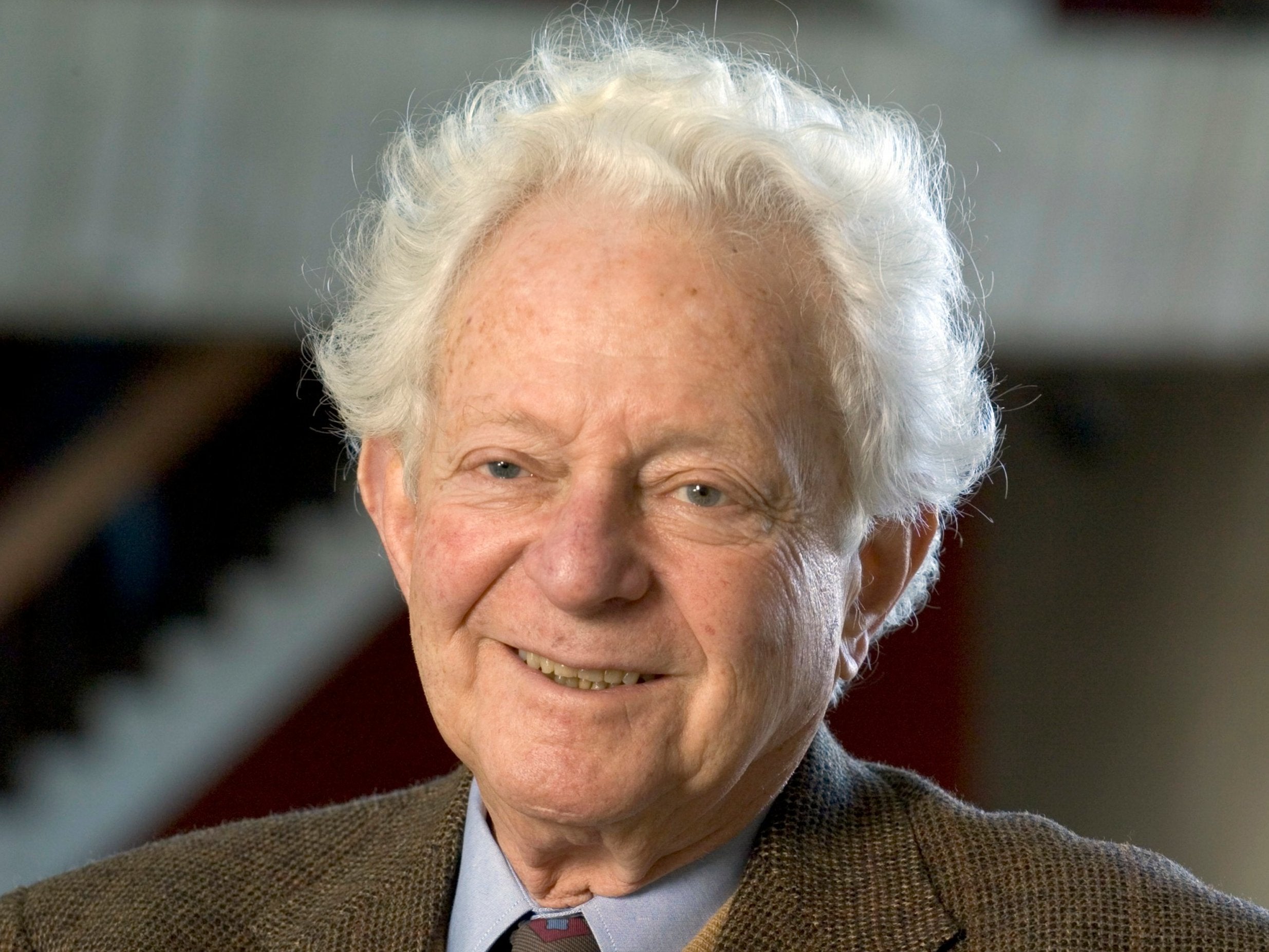Leon Lederman death: Nobel Prize-winning physicist dies aged 96 after being forced to sell medal for $765,000 to pay medical bills
Scientist hailed for 'extraordinary contributions to our understanding of the basic forces and particles of nature'

Your support helps us to tell the story
From reproductive rights to climate change to Big Tech, The Independent is on the ground when the story is developing. Whether it's investigating the financials of Elon Musk's pro-Trump PAC or producing our latest documentary, 'The A Word', which shines a light on the American women fighting for reproductive rights, we know how important it is to parse out the facts from the messaging.
At such a critical moment in US history, we need reporters on the ground. Your donation allows us to keep sending journalists to speak to both sides of the story.
The Independent is trusted by Americans across the entire political spectrum. And unlike many other quality news outlets, we choose not to lock Americans out of our reporting and analysis with paywalls. We believe quality journalism should be available to everyone, paid for by those who can afford it.
Your support makes all the difference.An experimental physicist who won a Nobel Prize for his groundbreaking work on subatomic particles has died aged 96.
Leon Lederman coined the phrase "God particle", a shorthand description of the then-theoretical Higgs boson, in the title of a 1993 book.
His discoveries proved crucial in the identification of the subatomic particle that accounts for matter having mass in 2012.
In 1988 he was awarded the Nobel Prize in Physics for his part in the discovery of another sub-atomic particle, the muon neutrino.
The American scientist later auctioned off his gold medal for $765,000 (£665,000) to help pay medical bills after being diagnosed with dementia.
He died at a nursing home in the Idaho town of Rexburg on Wednesday, said Ellen Carr Lederman, his wife of 37 years.
"What he really loved was people, trying to educate them and help them understand what they were doing in science," she said.
Dr Lederman was seen as a giant in his field who also had a passion for sharing science.
"He made extraordinary contributions to our understanding of the basic forces and particles of nature," Michael Turner, a professor at the University of Chicago. "But he was also a leader far ahead of his time in science education, in serving as an ambassador for science around the world, and transferring benefits of basic research to the national good."
Dr Lederman directed the university's Fermi National Accelerator Laboratory from 1978 to 1989.
Dr Lederman was in 1922 in New York City, where his father operated a hand laundry. He earned a degree in chemistry at the City College of New York in 1943 before serving three years in the US Army during World War II.
In 1951 he completed a PhD in particle physics at Columbia University, where he began making discoveries involving subatomic particles.
"Leon Lederman provided the scientific vision that allowed Fermilab to remain on the cutting edge of technology for more than 40 years," said Nigel Lockyer, the current director of the Fermi National Accelerator Laboratory.
Ms Lederman said her husband often worked while vacationing in Idaho, where he bought the couple of a ranch with his Nobel Prize winnings. But he also enjoyed skiing and horseback riding.
"I had to learn to ski; he had to learn to ride," his wife said. "And he had to ride a lot more than I had to ski. It was a good deal. He was a good rider."
Dr Lederman was only the second living laureate to sell a Nobel Prize gold medal.
Following the auction, in 2015, his wife said he had enjoyed the award but "but feels it is time for someone else who shares his love of science to treasure his medal".
"He hopes this sale raises the awareness of the importance of physics," she added.
Join our commenting forum
Join thought-provoking conversations, follow other Independent readers and see their replies
Comments